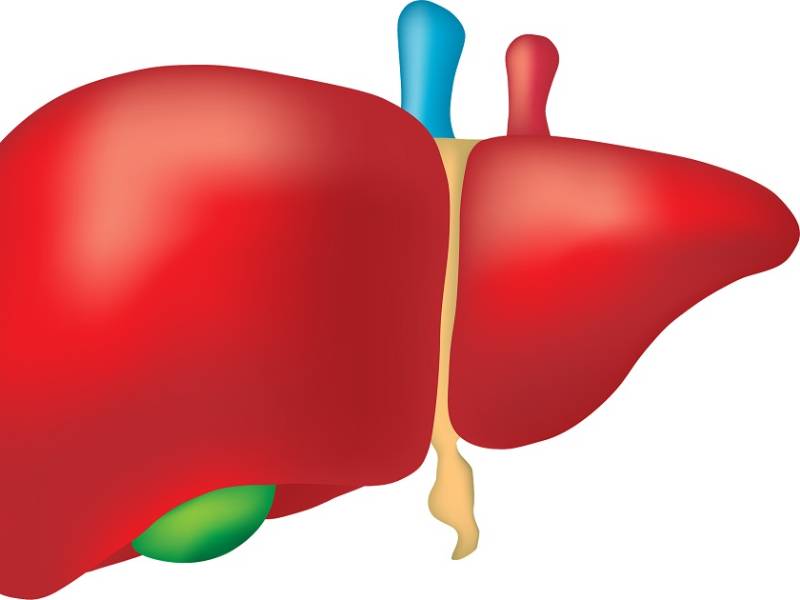What is Liver Failure?
Liver failure occurs when your liver isn’t working well enough to perform its functions. Liver failure is caused by cirrhosis or scarring of the liver. Liver failure can be chronic or acute. In people with acute liver failure, the liver rapidly loses its function. In those with chronic liver failure, the liver loses function over a longer period. Liver failure can affect the following important functions:
- Making blood proteins that aid in clotting, transporting oxygen, and supporting the immune system
- Manufacturing bile, a substance needed to help digest food
- Helping the body store sugar (glucose) in the form of glycogen
- Ridding the body of harmful substances in the bloodstream, including drugs and alcohol
- Breaking down saturated fat and producing cholesterol
Dr. Manoj Dongare provides the best liver failure treatment in Pune. He is the best liver transplant surgeon in Pune.

What are the Types of Liver Failure?
There are two kinds of liver failure: acute liver failure and chronic liver failure.
- Acute liver failure: It is also called fulminant hepatic failure, which is the rapid loss of liver function over days or weeks in a child who has no previous history of liver disease.
- Chronic liver failure: It is also known as end-stage liver disease, develops over months or years as the result of damage caused by long-term liver diseases such as biliary atresia, metabolic liver disease, hepatitis B or hepatitis C, or cirrhosis.
What are the symptoms of liver failure?
Jaundice, a yellow discoloration of the skin and eyes, is usually the first and sometimes the only sign of liver disease. Other symptoms include:
- confusion or disorientation
- pain or tenderness in the upper right abdomen
- weakness
- fatigue
- nausea
- vomiting
- dark urine
- easy bleeding
- itching
- small, spider-like vessels visible in the skin
- chills
Diagnosing liver failure:
To diagnose liver failure, the Liver Specialist doctor will start by taking your medical history and performing a physical examination. They may then perform a variety of additional tests, including:
- Liver blood tests: Liver blood tests assess the levels of various proteins and enzymes in your blood that can be an indicator of your liver functions.
- Other blood tests: The liver Specialist doctor may also perform a complete blood count (CBC) or test for viral hepatitis or genetic conditions that can cause liver damage.
- Imaging tests: Imaging technology such as ultrasound, CT scan, or MRI scan can help your doctor to visualize your liver.
- Biopsy: Taking a tissue sample from your liver can help a Liver Specialist doctor to see if scar tissue is present and can also aid in diagnosing what may be causing your condition.
What are the complications of liver failure?
Liver failure may cause:
- Liver encephalopathy: a drop in brain function caused by the buildup of toxic substances in the blood
- Jaundice: yellow discoloration of the skin and whites of your child’s eyes due to an abnormally high level of bilirubin (bile pigment) in the bloodstream
- Coagulopathy: a bleeding disorder that happens when blood does not clot and can result in excessing bleeding from even a small cut
- Portal Hypertension: abnormally high blood pressure in the vein that brings blood from the intestine to the liver (the portal vein), that can cause a distended abdominal cavity (ascites), prominence of abdominal wall veins, or bleeding of the varicose veins at the lower end of the esophagus or the stomach lining
- Ascites: the build-up of fluid in the abdominal cavity caused by fluid leaks from the vessels on the surface of the liver and intestine that can make a child feel short of breath
- Hepatomegaly: an enlarged liver that may cause abdominal pain or a feeling of fullness
How Is Liver Failure Treated?
- Medication: The liver Specialist doctor has given Some medications that can reverse the effects of mushrooms or other poisons.
- Supportive care: If a virus causes liver failure, a hospital can treat your symptoms until the virus runs its course. In these cases, the liver will sometimes recover on its own.
- Liver transplant: If your liver failure results from long-term damage, the first step may be to try to save whatever part of your liver still works. If that fails, you’ll need a liver transplant. Fortunately, this procedure is often successful.
What Prevention we take to avoid Liver Failure?
A person can minimize their risk of developing the liver disease by:
- Maintaining a moderate weight
- Avoiding excessive alcohol consumption
- Get a hepatitis vaccine
- Medication is given by Liver Specialist
- Regular physical activity
Book an Appointment:
Dr. Manoj Dongare at Dr. D. Y. Patil Hospital and Research Center provides one of the best Liver treatment and transplant services in Pimpri Chinchwad and Pune. For more information about our comprehensive treatment options, or to request an appointment with one of the best Surgical Liver Transplant and HPB Surgeon in Pune call 09881379573 or Click on Book Appointment for online booking with your near hospital.
